The Future of Sales AI
Casey O'Connor
Artificial intelligence (AI) is becoming more ubiquitous every day, and sales is no exception.
The term “AI” actually covers several different concepts, including things like machine learning, natural language processing, deep learning, and more.
The implications of AI in sales are profound, with more and more sales teams implementing it in various forms.
And although AI is no replacement for person-to-person interaction (sales will always require a human touch!), the technology can improve virtually all aspects of the sales process, from creating more time for sales reps by automating administrative tasks, to improving customer interactions with sentiment analysis.
In this article, we’ll go over everything you need to know about the future of sales AI, including six of the most effective ways to implement it in your sales process.
Here’s what we’ll cover:
- What Is Artificial Intelligence?
- How Can AI Be Used in Sales?
- 6 Ways Your Team Can Use AI in Sales
- How to Implement Sales AI
What Is Artificial Intelligence?
 Artificial intelligence (AI) is an umbrella term that encompasses a variety of machine and computer systems that are programmed to complete tasks that are normally assigned to humans.
Artificial intelligence (AI) is an umbrella term that encompasses a variety of machine and computer systems that are programmed to complete tasks that are normally assigned to humans.
Some common types of AI include machine learning, natural language processing (NLP), and predictive analytics.
Machine learning is one of the hallmarks of AI, and one of the things that makes it different from standard “technology.”
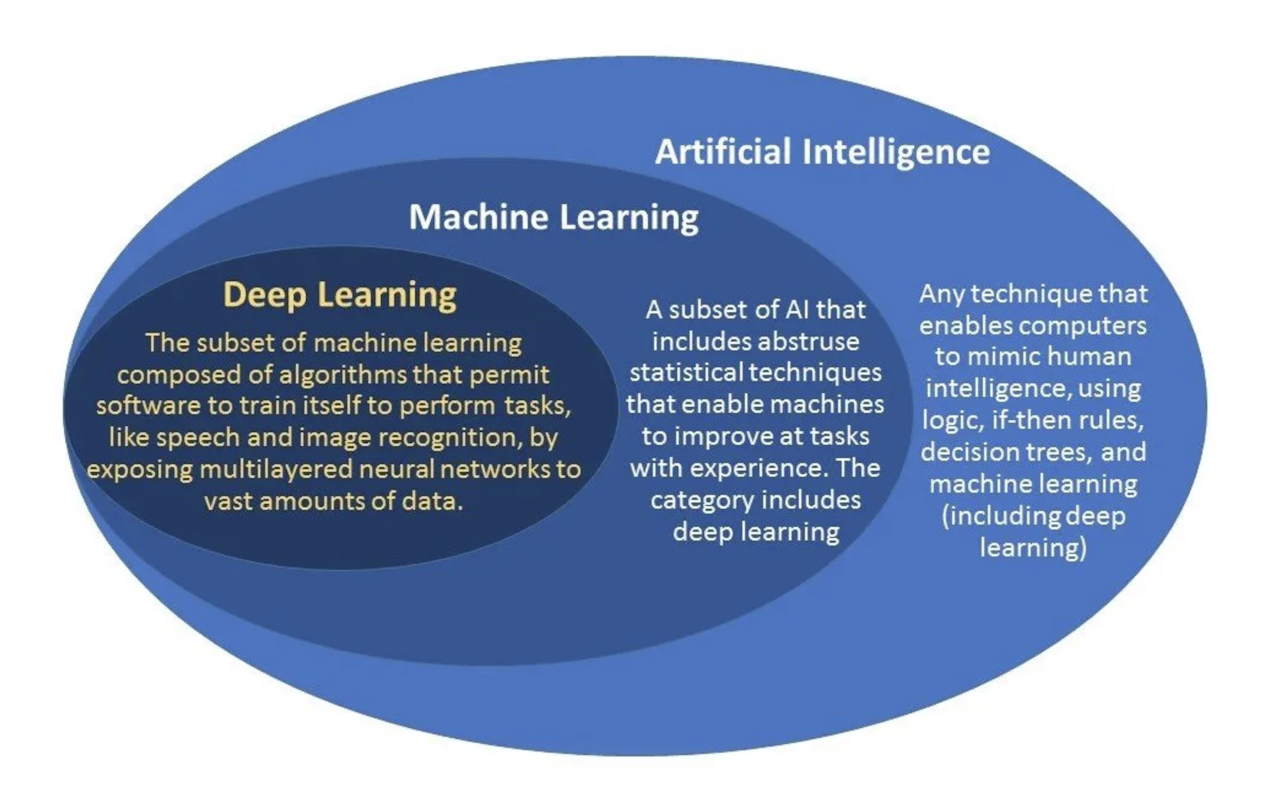
In other words, machine learning is AI’s unique ability to reason about, learn from, and improve upon its own capabilities. AI can analyze data to make decisions, and then iterate and optimize that process over time.
Natural language processing (NLP) is the ability of an AI system to understand, interpret, and infer complex meaning and sentiment from human language.
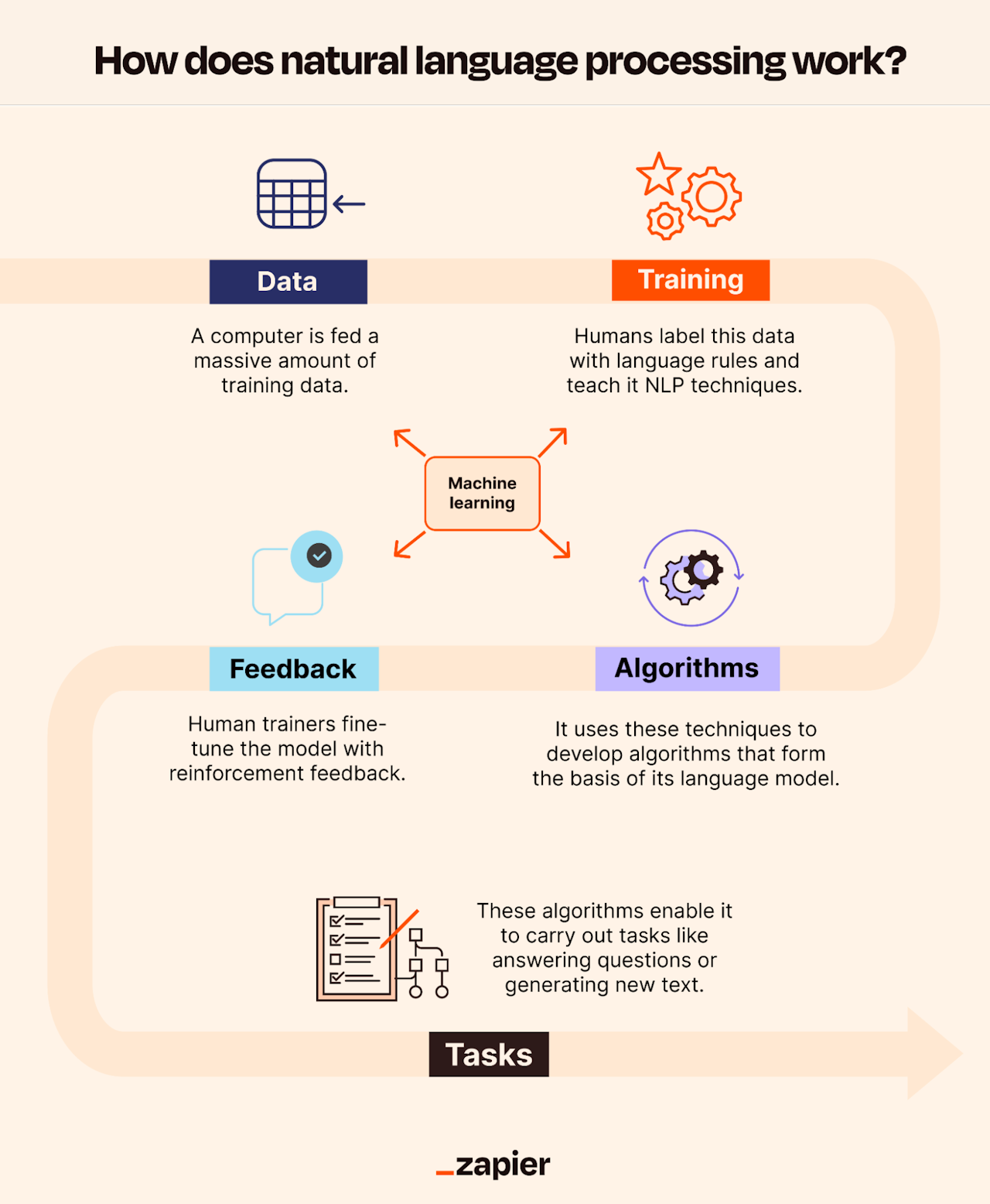
NLP helps teams save time and money, better analyze their sales interactions, and improve their sales relationships.
Predictive analytics in sales can also have broad impacts on the way a sales team operates from top to bottom:
- Helps salespeople anticipate how to best reach and connect with future customers
- Predicts business and market trends
- Drives the goal-setting process for sales teams
Predictive analytics isn’t new to sales, but AI is raising the bar when it comes to the quality of data and level of analysis. Here’s how it works:
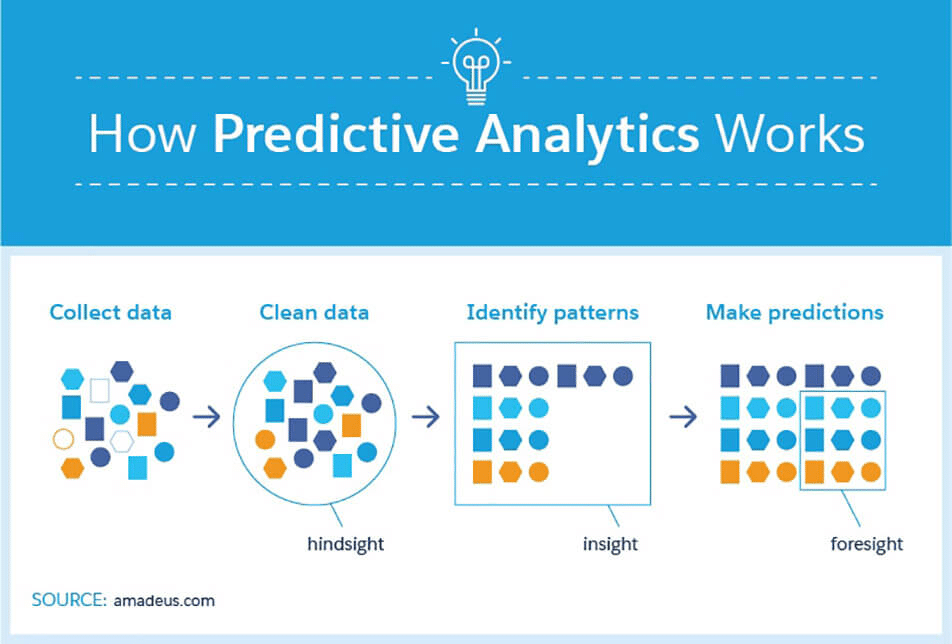
AI and its many capabilities are transforming the way savvy sales teams manage their sales processes and databases.
How Can AI Be Used in Sales?
The number of ways that AI can be used in sales is impressive and is growing every day.
Many sales teams are already leveraging the benefits of sales AI in processes like lead generation, customer segmentation, and the kind of personalized outreach that buyers expect.
Lead Generation
One of the things that artificial intelligence is particularly capable of is identifying patterns and applying them to new scenarios.
This can be a huge benefit for lead generation; sales teams can give AI platforms data about their most successful customers, which the machine can then use to scan against third-party lead databases to find well-qualified, high-potential leads.
In fact, many AI systems can even go beyond that—not only do they help identify new target prospects, but they can also recommend the best ways to approach them (i.e., via which channel, with which content, etc.) to improve the likelihood of a positive response.
AI tools like Seamless.ai, Albert, and LeadIQ can help make the lead generation and sales prospecting processes more efficient and productive, which can help improve conversion and close rates and overall sales success.
Customer Segmentation
Artificial intelligence can also give sales teams a huge advantage when it comes to segmenting their prospects and customers.
Many sales AI platforms use an intelligent lead scoring system to help sales teams identify which leads to prioritize depending on their likelihood to convert. 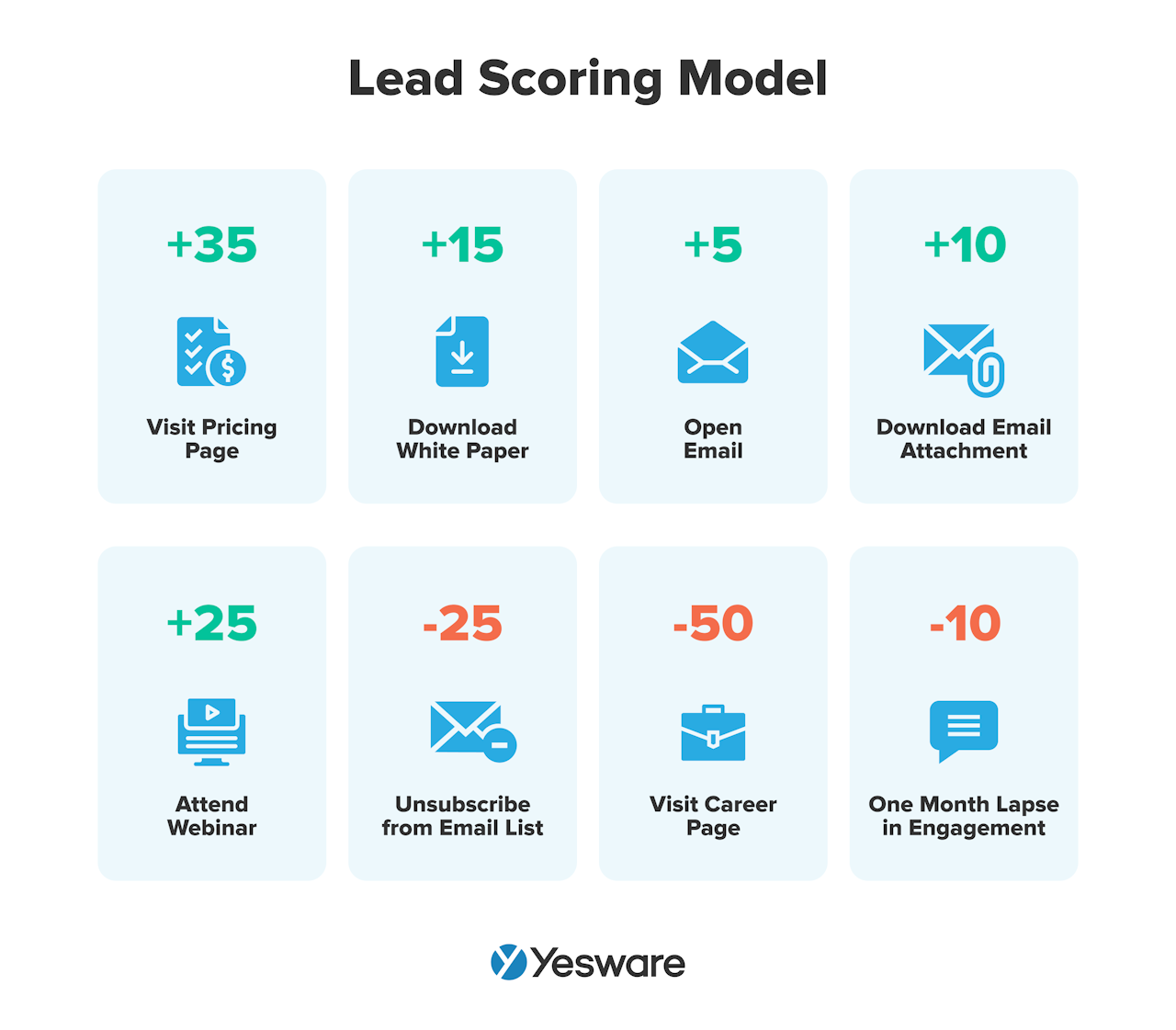 Keep in mind that AI lead scoring is much more advanced than the basic versions many sales teams may have relied on in the past.
Keep in mind that AI lead scoring is much more advanced than the basic versions many sales teams may have relied on in the past.
AI lead scoring takes all traditional factors like demographic, firmographic, and technographic data, into account, while also pulling in data from prospects’ social media profiles and posts, their previous interactions with your brand or your competitors, and any other relevant knowledge that isn’t readily available (or easily integrated) for sales reps.
AI can help sales teams analyze huge swaths of prospect and target market data to improve customer segmentation and targeting efforts.
Personalized Outreach
Sales teams can also rely on AI tools to help them send hyper-personalized messages (including on-time follow-ups) with little extra effort on their part.
In a B2B sales landscape where the importance of email personalization cannot be understated, AI is the tool that can help take sales teams to the next level of customization. 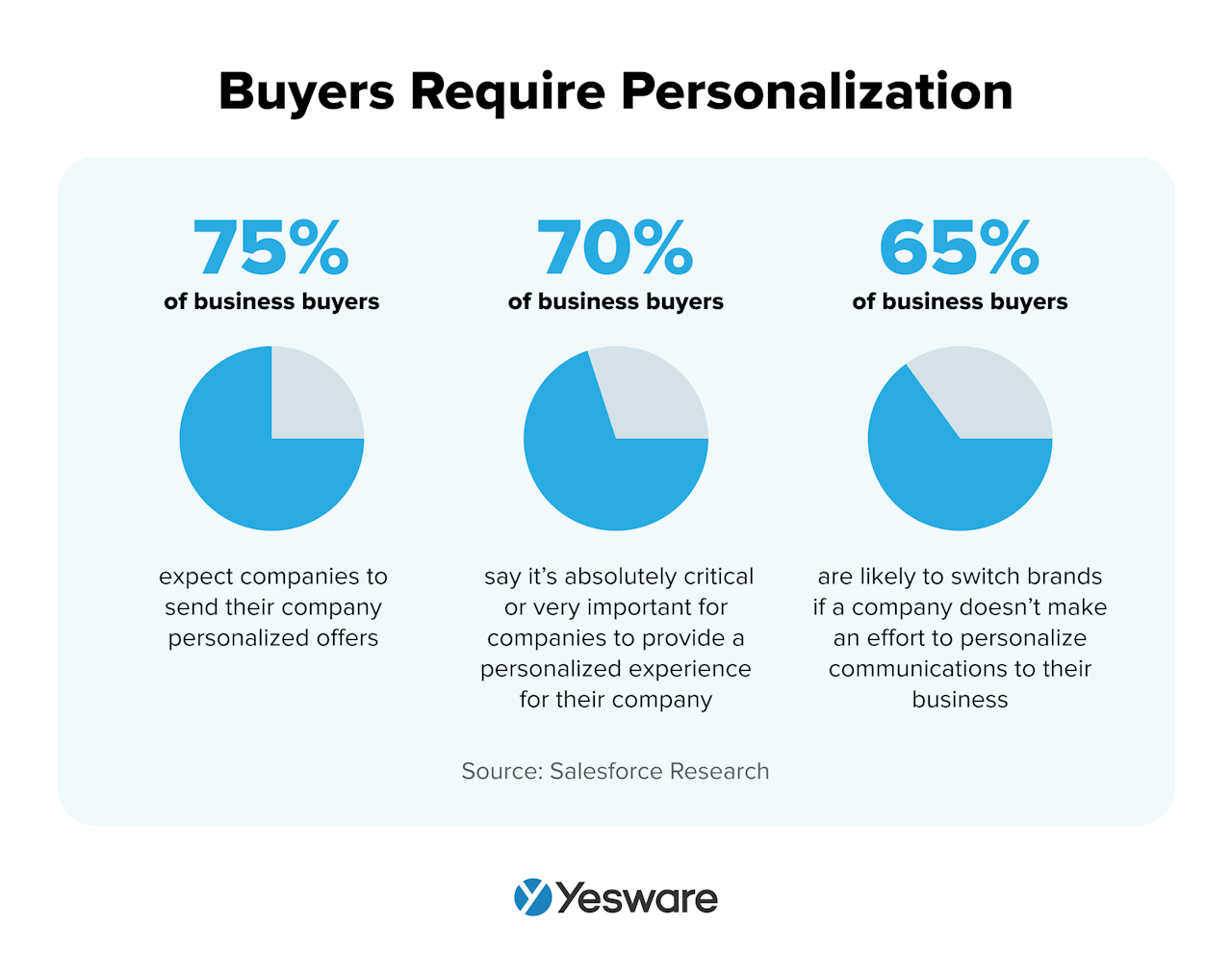 Sales AI can help teams understand exactly what content each prospect responds to best with a high level of accuracy and sophistication.
Sales AI can help teams understand exactly what content each prospect responds to best with a high level of accuracy and sophistication.
Sales AI can also be a huge asset for sales enablement departments.
AI tools can help sales and marketing teams build comprehensive, dynamic content libraries that are tailored to meet the exact needs of your target market.
It can also recommend the right content at the right time depending on what each prospect needs, meaning sales reps always have exactly the right collateral at their fingertips.
Sales Efficiency
One of the biggest overall benefits of using sales AI is the way it improves sales efficiency. A Deloitte study found that a third of AI users reported that their platforms improved the efficiency of their processes to a high degree.
That’s not surprising, given that McKinsey reports that at least 30% of a sales rep’s daily responsibilities are repetitive, non-selling tasks that can be automated.
With the help of AI, sales reps can significantly improve their efficiency and productivity.
In fact, artificial intelligence in sales is great for overall performance improvement:
- According to Salesforce, high-performing teams are 4.9x more likely to use AI for sales than underperforming ones.
- Only 37% of sales teams overall use AI, but more than half of high performing teams use the technology in their processes.
- Sales reps who use AI have about 50% more leads and sales meetings.
- McKinsey estimates that artificial intelligence has the potential to add $1.4 to $2.6 trillion of value in marketing and sales fields.
Before concluding this section, it’s important to note that B2B sales will always require some level of human interaction — at least, for the foreseeable future. There is no replacement for personal interaction in certain parts of the sales process (and especially for certain buyer personas).
B2B sales still requires complex problem-solving, empathy, and charisma that AI can’t handle. The technology is designed to give sales reps leverage and support in their interactions, not replace them entirely.
Tip: Are you a sales professional selling an AI tool? Grab our guide here –> Selling AI.
6 Ways Your Team Can Use AI in Sales
Here are six specific ways your team can use AI in your sales processes. 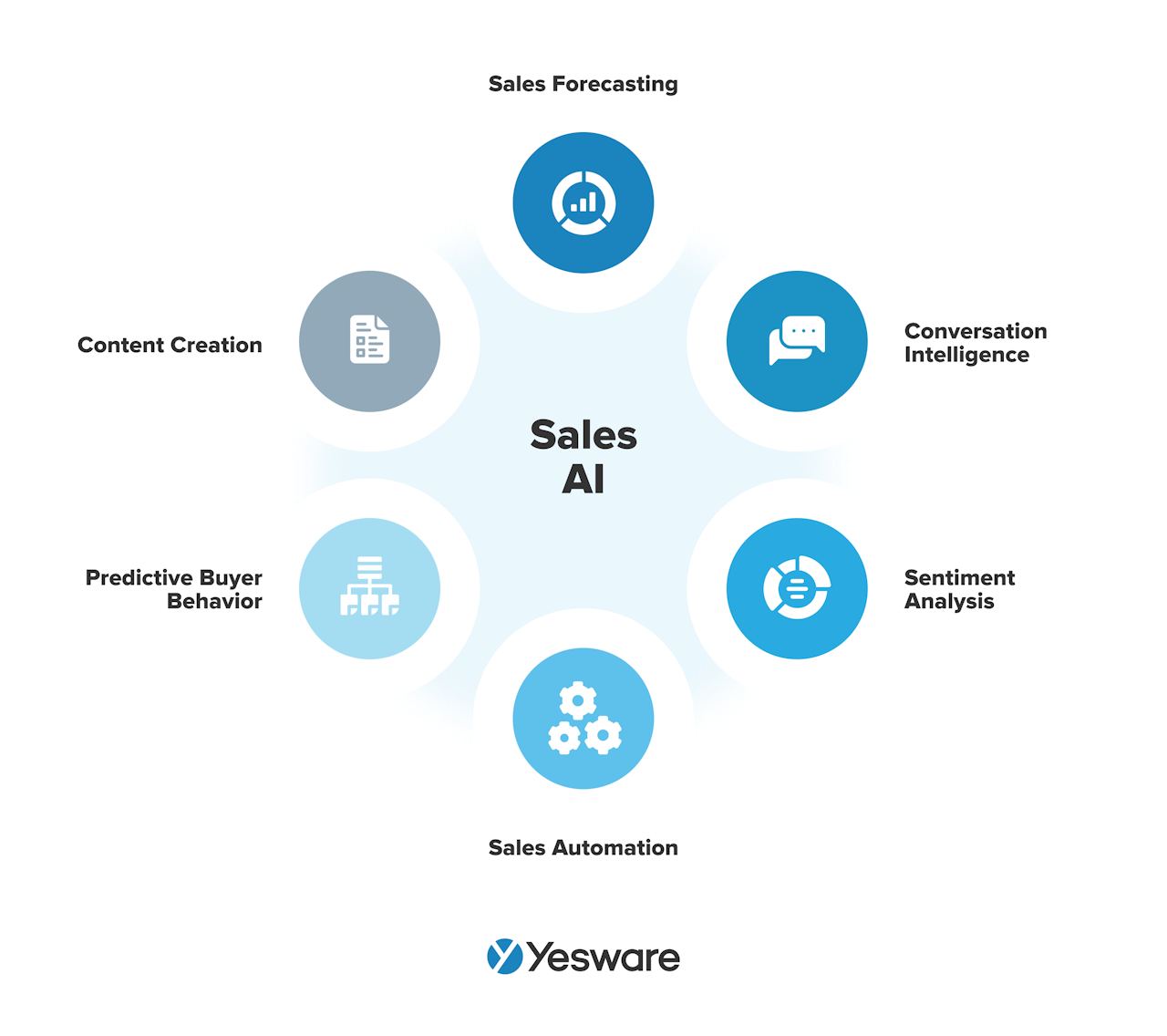
1. Sales Forecasting
Sales forecasting is a very important practice for any organization that wants to grow their revenue and scale their success. 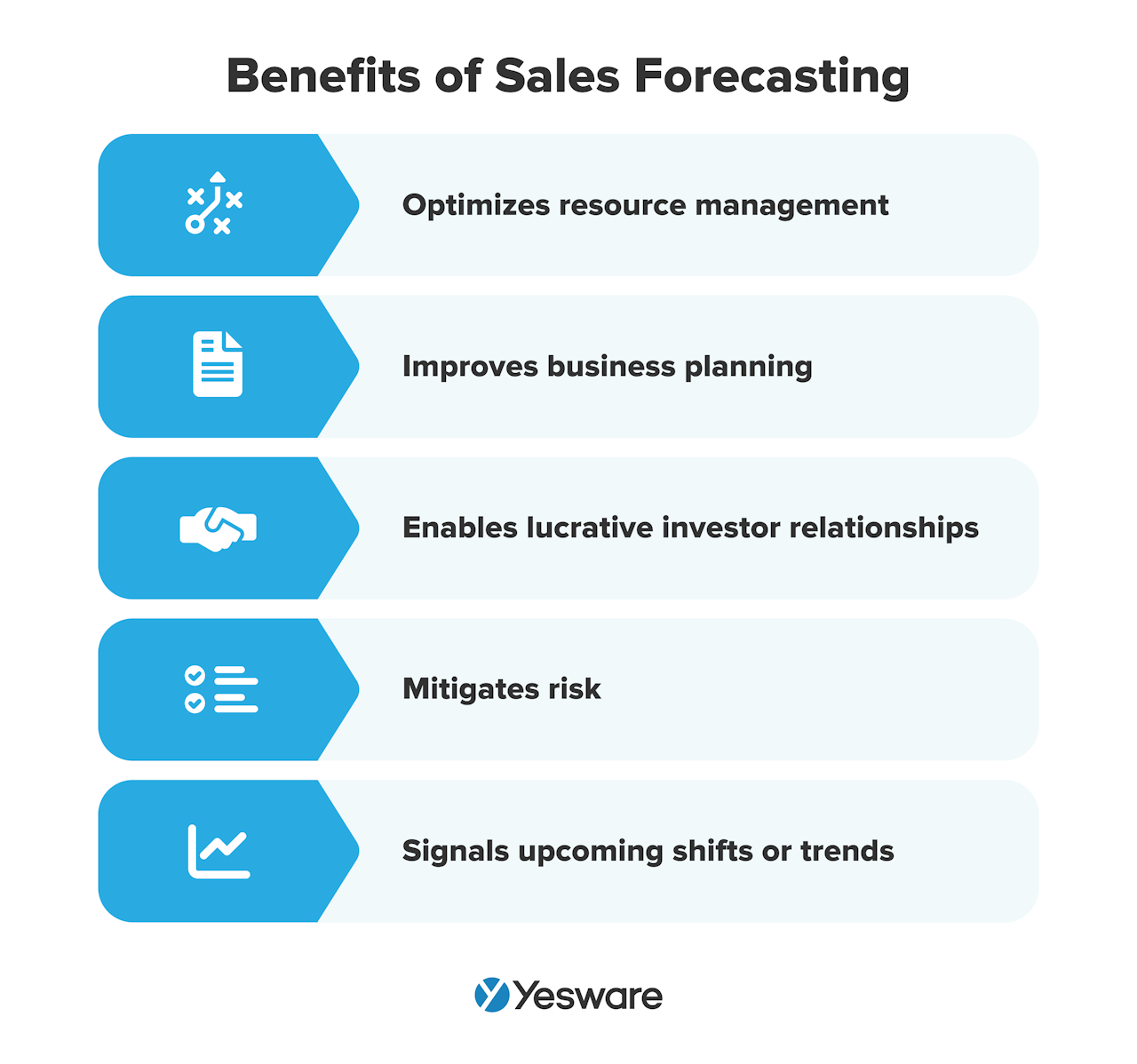 AI algorithms can take sales forecasting to the next level with sophisticated analysis of historical data and powerful, intuitive market and trend analytics to predict future sales with a much higher level of accuracy than any human could.
AI algorithms can take sales forecasting to the next level with sophisticated analysis of historical data and powerful, intuitive market and trend analytics to predict future sales with a much higher level of accuracy than any human could.
Accurate sales forecasts can help sales reps predict which/how many deals are most likely to close, how many renewals a team can anticipate, and any potential churn issues. They help sales teams know which markets to target next, and envision potential “what if” scenarios that help with flexibility.
Sales forecasts are also important data for business investors who want to feel confident about their return on investment.
Clari and Gong are two well-known and highly-rated AI sales forecasting tools.
2. Summarize Calls
Artificial intelligence can also bring new leverage and power to sales calls, with features like call summaries (that are immediate and highly accurate), conversation intelligence, and next step recommendations.
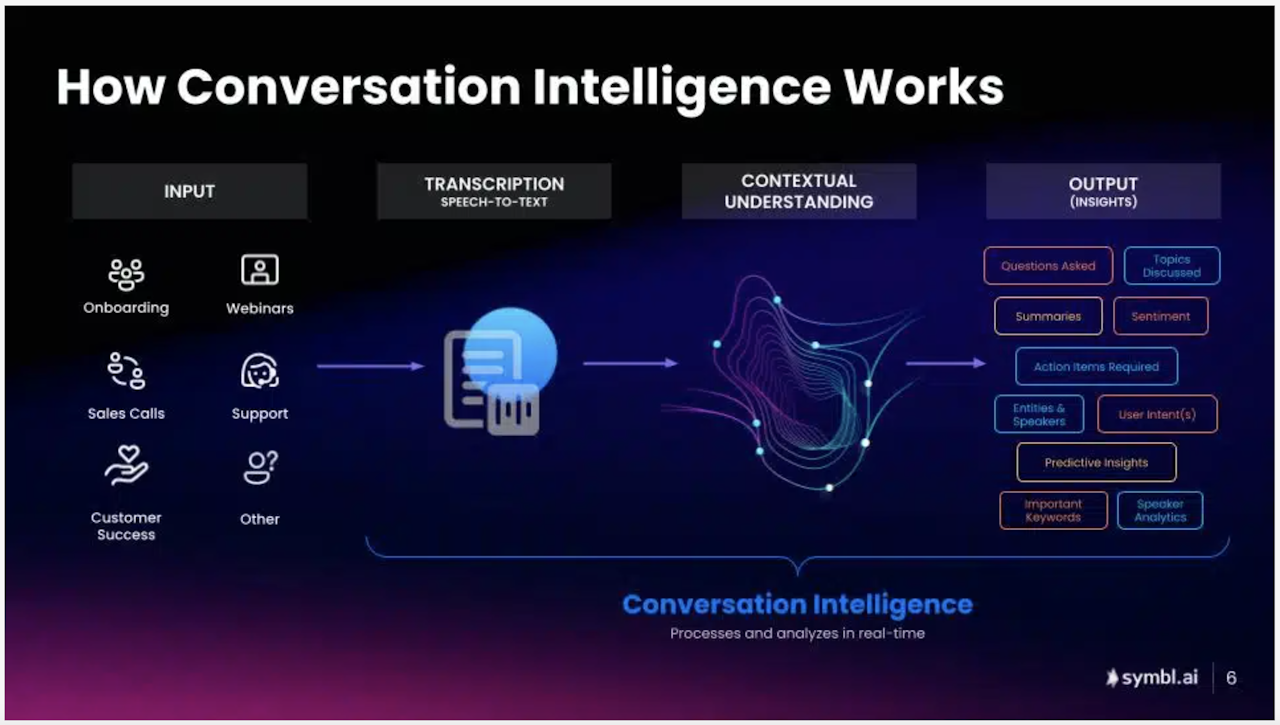
Accurate sales call summaries represent significant administrative work that cannot be ignored — these transcripts are key to helping sales reps analyze and optimize their sales strategies and can be instrumental in improving buyer relationships.
Sales AI tools like ASAPP can generate high-quality call transcripts for your sales team.
3. Sales Call Analysis
Sales call AI can also help analyze call transcripts and extract nuanced insights with tools like sentiment analysis.
Sentiment analysis uses NLP to analyze buyer/seller interactions via chat, email, phone, social media message, etc., and then provides insights into how the prospect felt at various points throughout the interaction (positive, negative, or neutral).
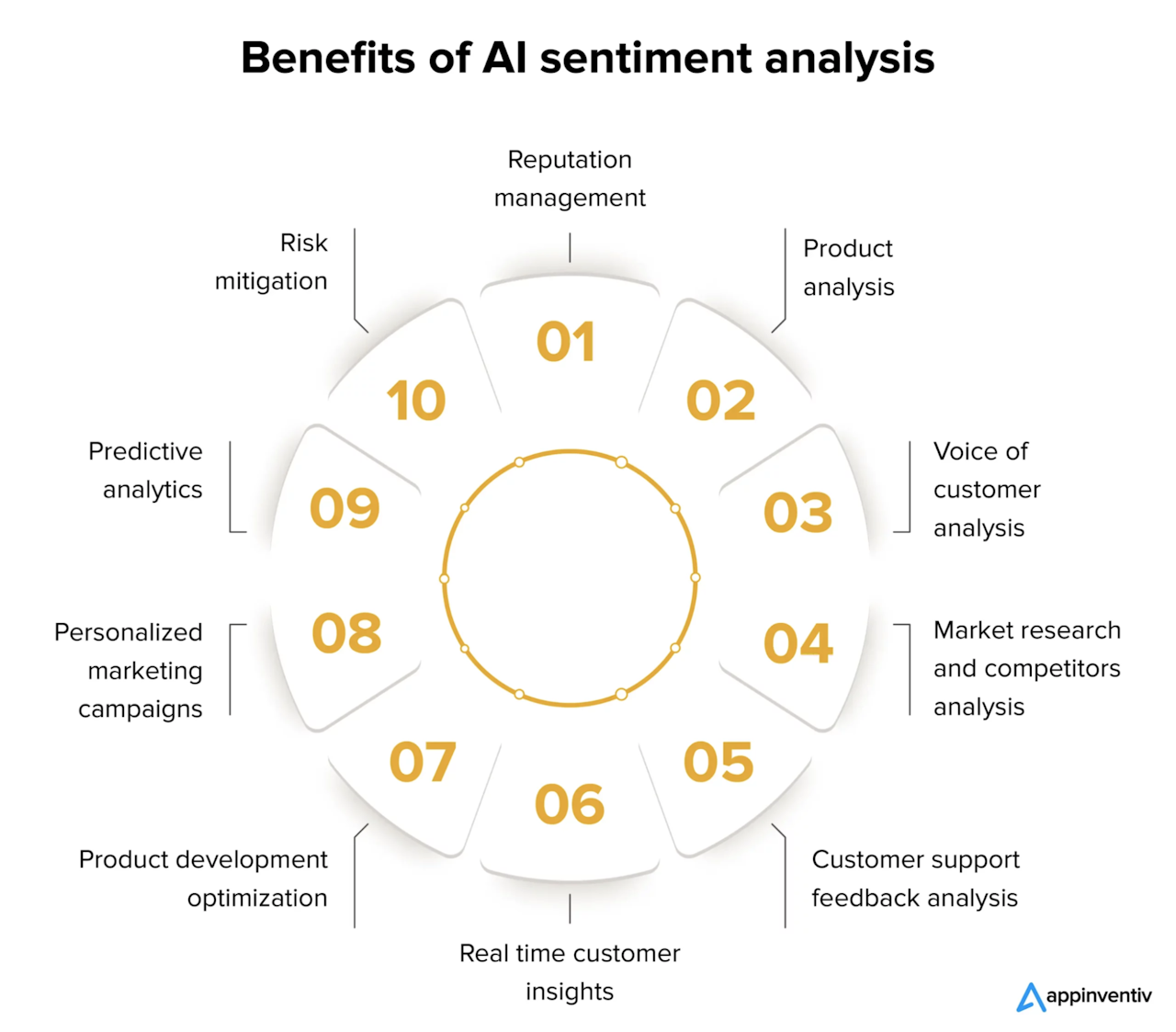
Sentiment analysis can help sales reps pinpoint the specific sales techniques, verbiage, tone, and more that resonate best with buyers.
Sales call analysis can also help teams identify trends and patterns that can give them an edge on future calls and highlight areas for improvement.
Colibri and Jiminy are AI call analysis tools for your sales team to consider.
4. Automated Sales Activities
Sales AI can also help sales teams add powerful automation to various points of their sales process, including tasks like:
- AI lead generation
- Scoring leads
- Performing A/B tests
- Operating AI chatbots
- Sending outreach at scale
- Personalizing sales content at scale
- Provide reporting insights and analytics
Sales AI can make a particularly big impact on email outreach, making easy work of the otherwise very complex task of sending large volumes of email messages that are each personalized and targeted to their recipients.
Yesware, for example, helps sales teams send automated, fully personalized multi-touch email campaigns to each of their various lead segments.
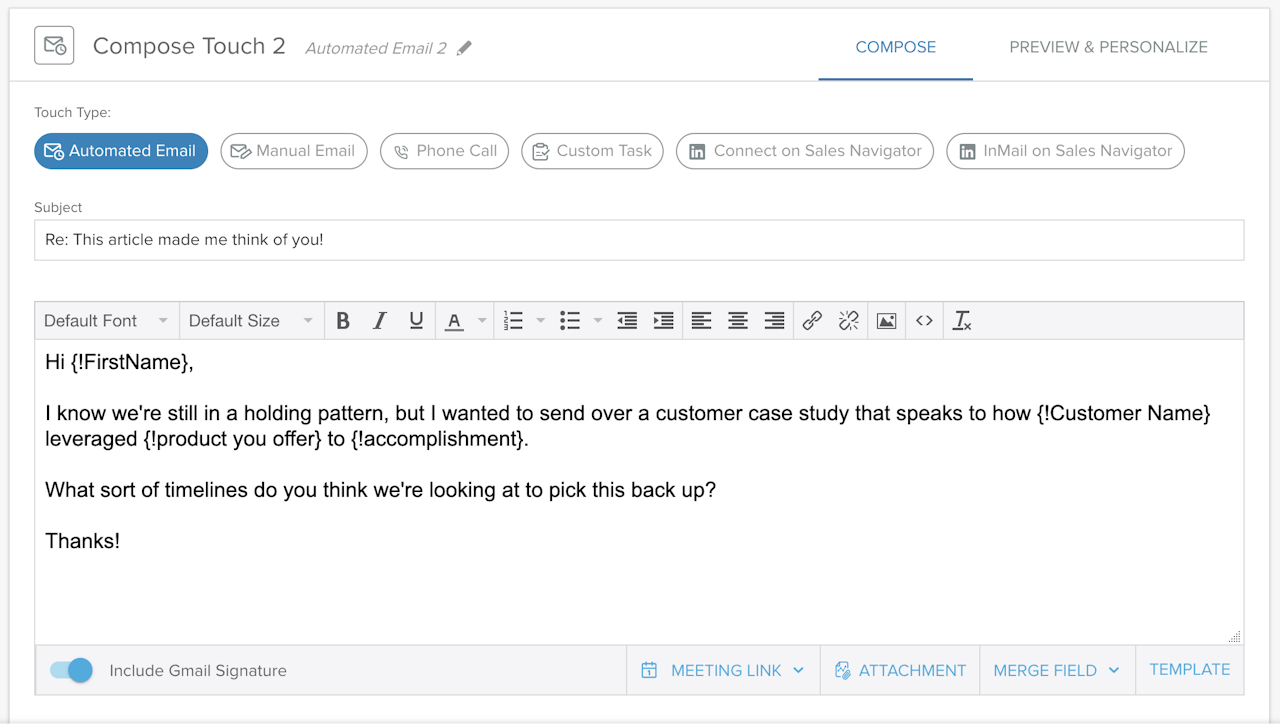
Yesware also tracks these campaigns and provides advanced insights and analytics regarding which of your sales efforts are resonating, and which need adjustments. These reports are all accessible from your Gmail or Outlook inbox.
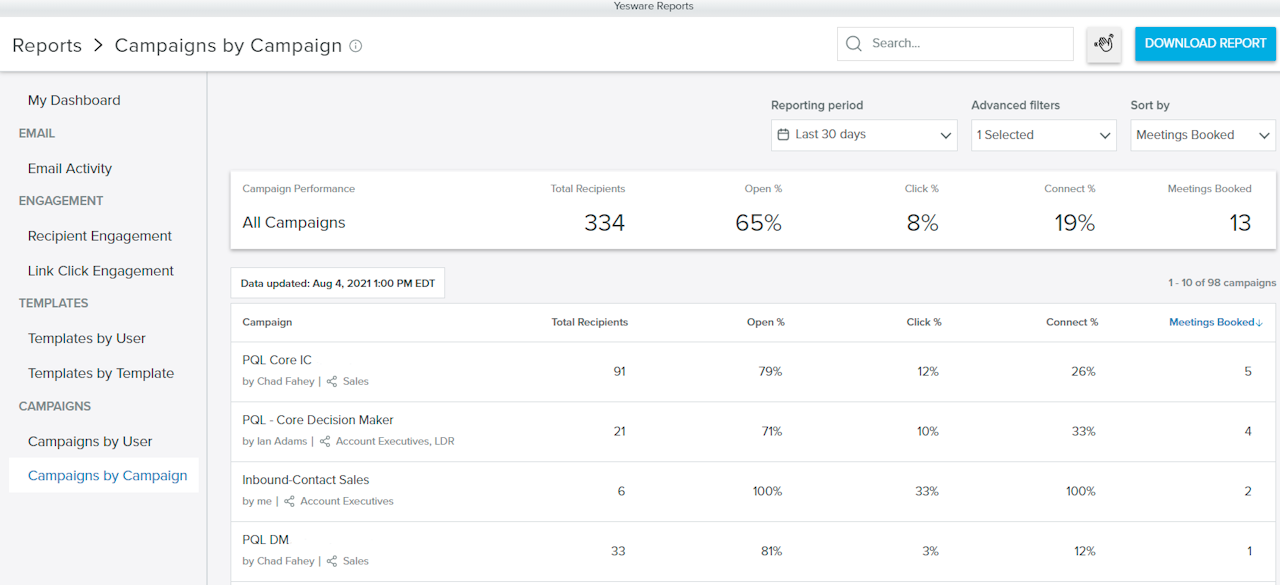
It also provides predictive analytics and forecasting.
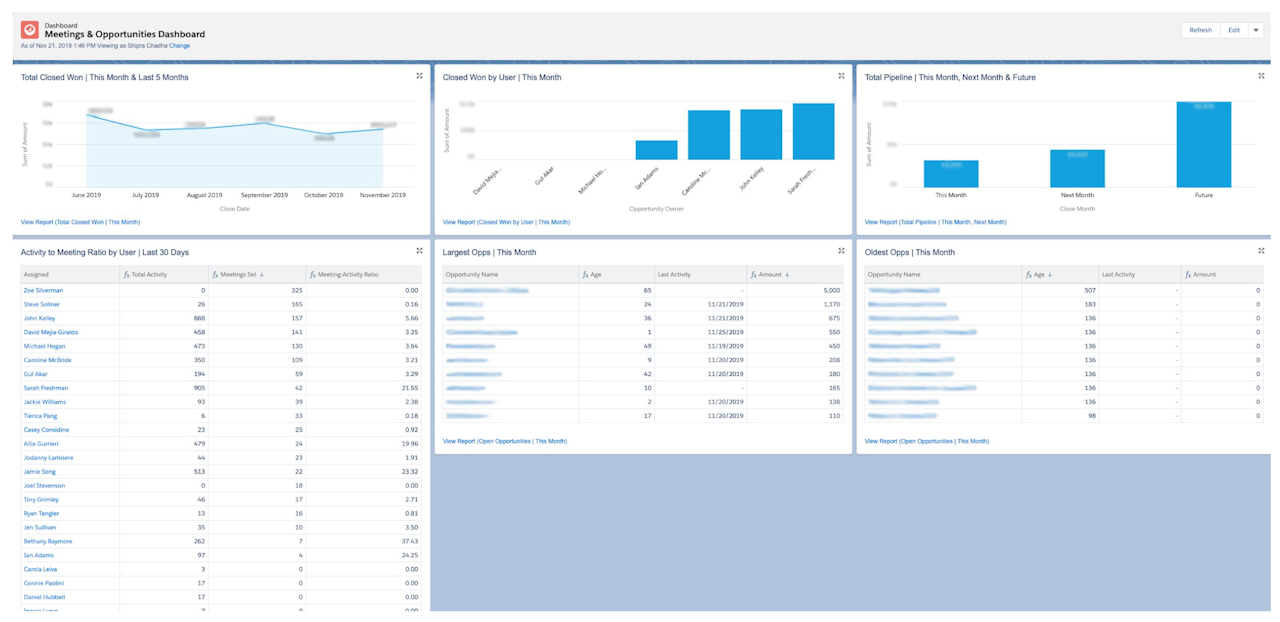
Sales AI automation helps sales teams execute outreach at scale and optimize the processes based on high-level analytics.
5. Prediction of Likelihood to Close or Readiness to Buy
Some sales AI tools can also help teams predict their likelihood of closing any given sales opportunity based on data analysis.
In other words, these tools can help assess a prospect’s readiness to buy so that sales reps can prioritize their efforts accordingly.
Many sales teams may already follow a lead-scoring process, but sales AI brings a new level of confidence, accuracy, and completeness that is difficult to achieve with manpower alone. 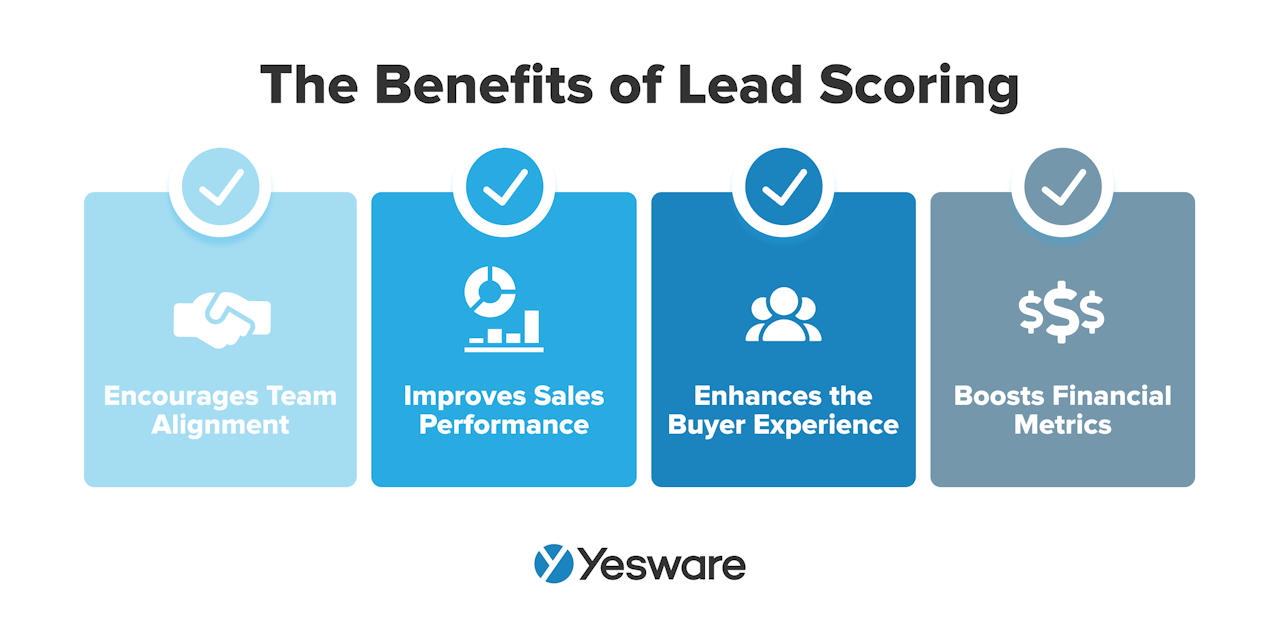 These systems use a complex algorithm to analyze implicit and explicit data, like prospect behavior, demographics, and engagement levels, to determine which leads to prioritize.
These systems use a complex algorithm to analyze implicit and explicit data, like prospect behavior, demographics, and engagement levels, to determine which leads to prioritize. 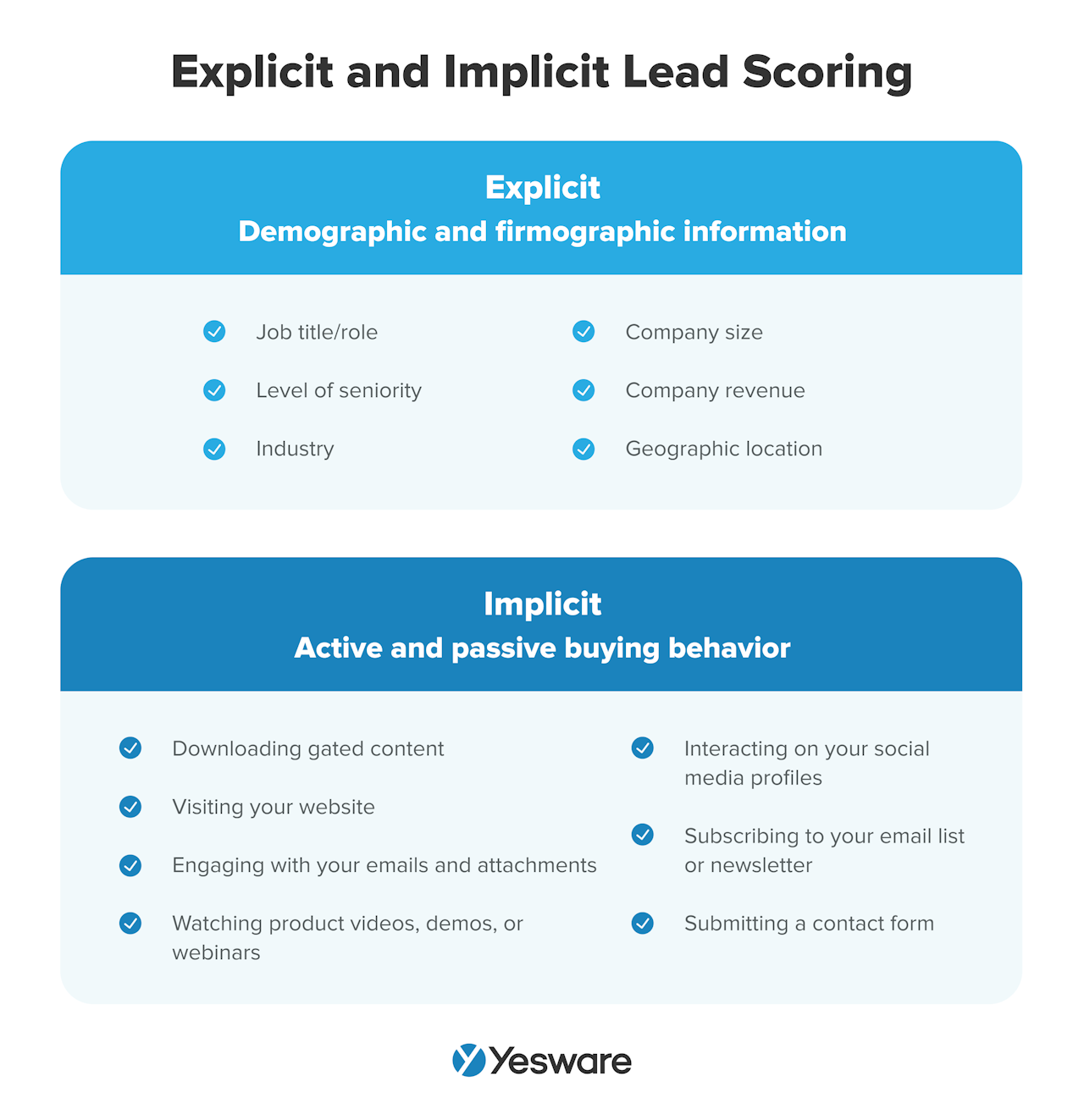 Not only does this save sales reps’ time, it also helps them gain a better understanding of their buyers’ needs, preferences, and pain points.
Not only does this save sales reps’ time, it also helps them gain a better understanding of their buyers’ needs, preferences, and pain points.
This type of sales AI can also help sales reps determine which of their existing customers would be most receptive to cross-selling or upselling efforts. 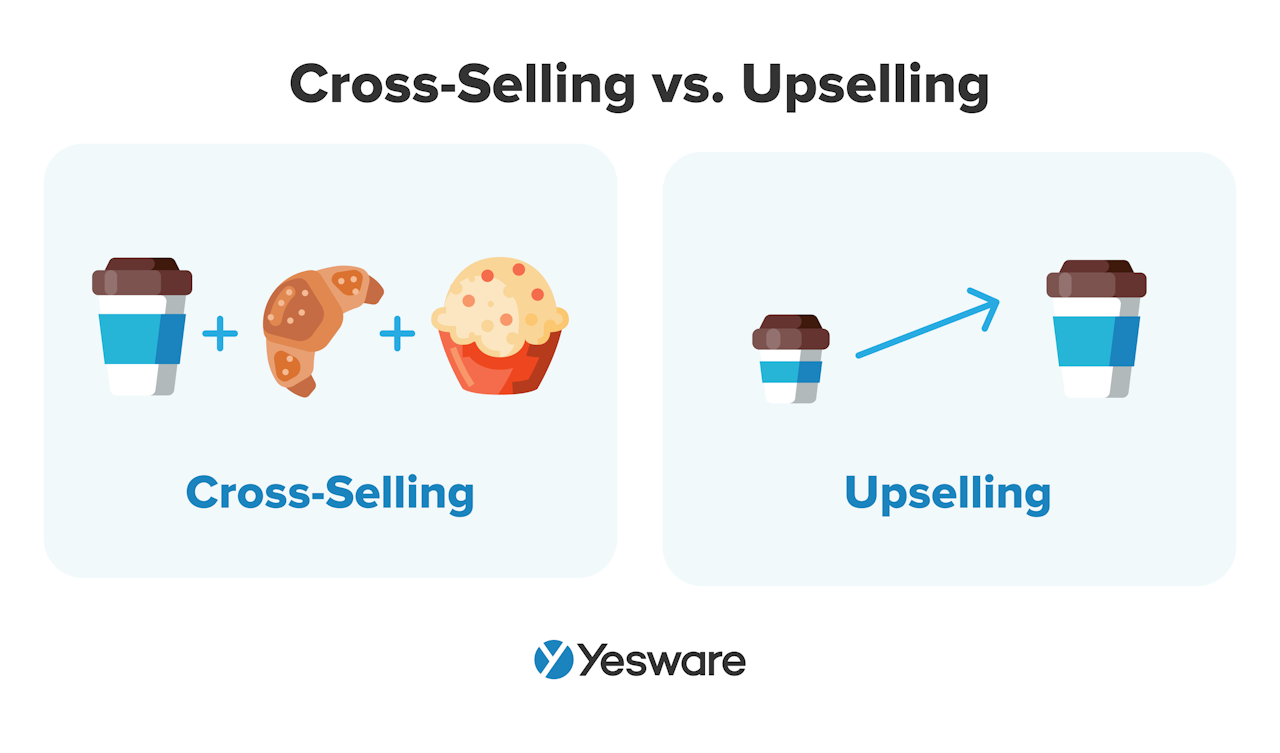 6Sense and Gong both offer predictive capabilities that help determine a lead’s likelihood of closing.
6Sense and Gong both offer predictive capabilities that help determine a lead’s likelihood of closing.
6. Generative AI
Generative AI is a subset of AI that specifically focuses on the creation of new content.
This type of AI can help sales reps create original, optimized, and personalized content like:
- Email messages
- Subject lines
- Blog posts
- Sales call scripts
- Sales presentations
- Other sales copy
- Images
Generative AI can help sales teams write high-converting copy that’s highly targeted, and deploy it at scale.
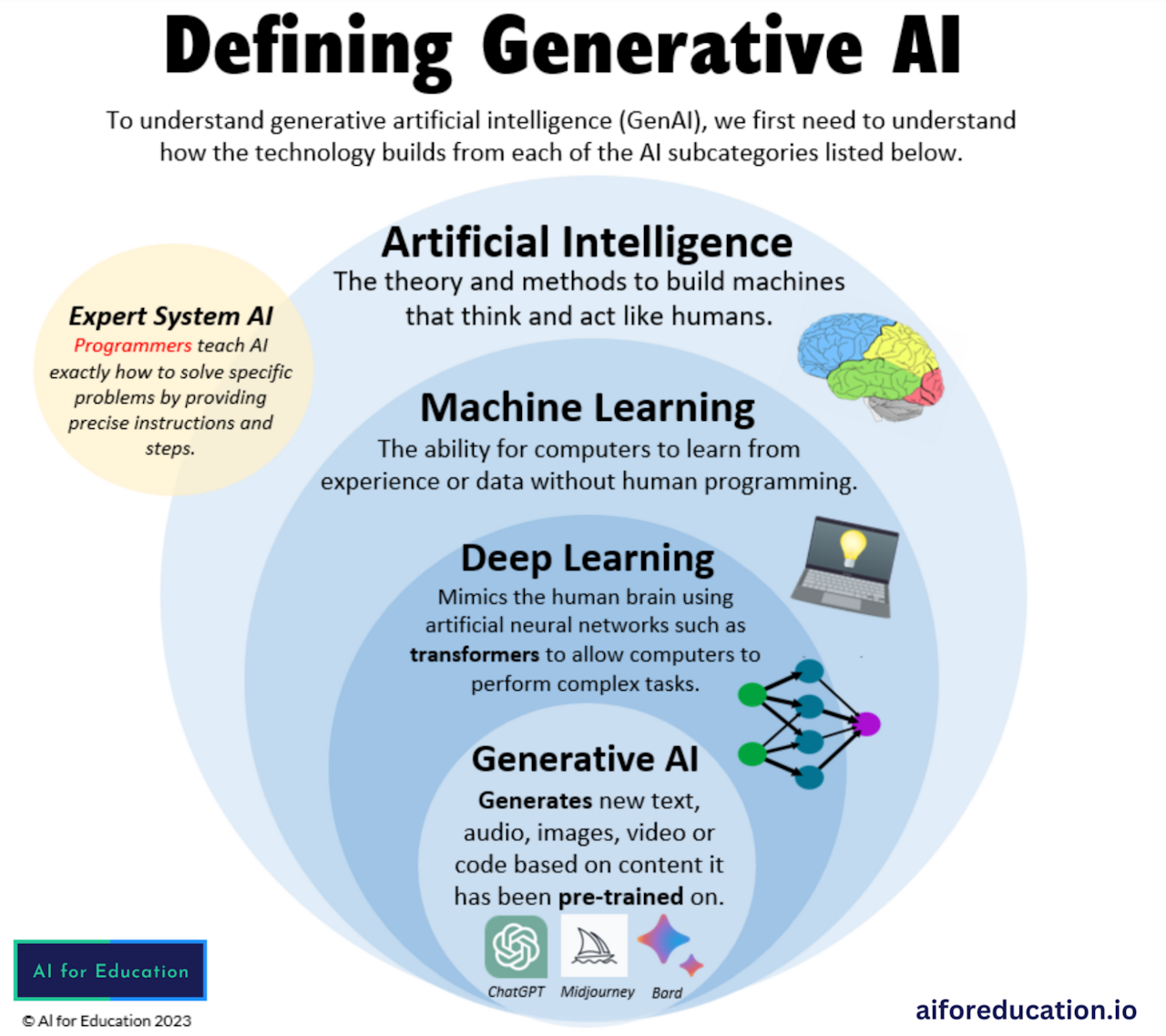
It’s hard to overstate just how much time and energy this kind of technology can make available for sales reps.
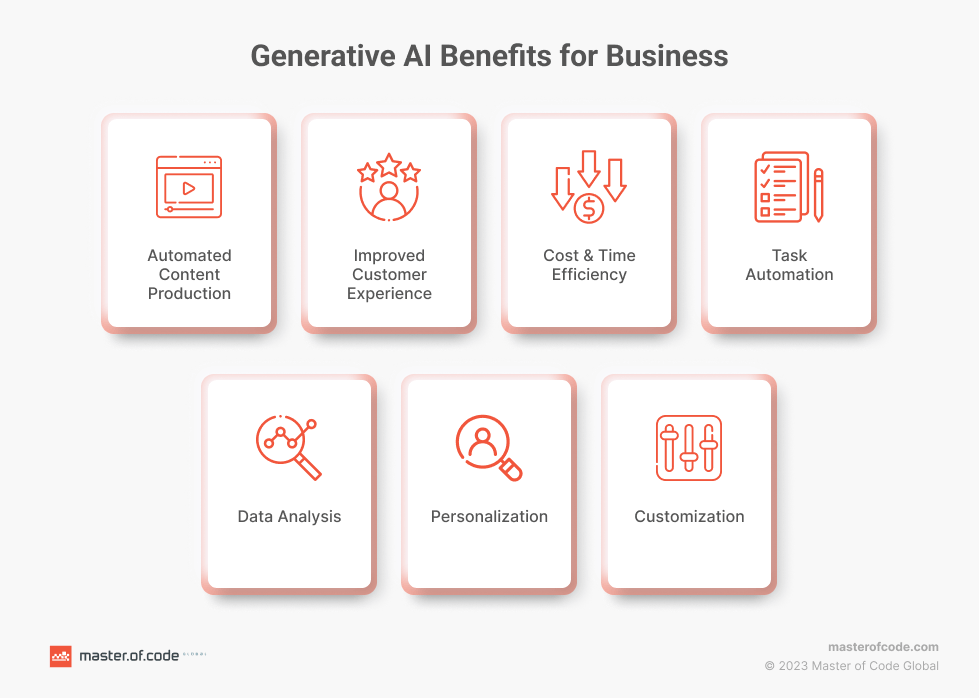
All that being said, sales AI is not a replacement for the “human touch.” The people on your sales team should all be active participants in monitoring the quality of any generative AI content that you distribute.
Tip: What tools are missing in your tech stack?
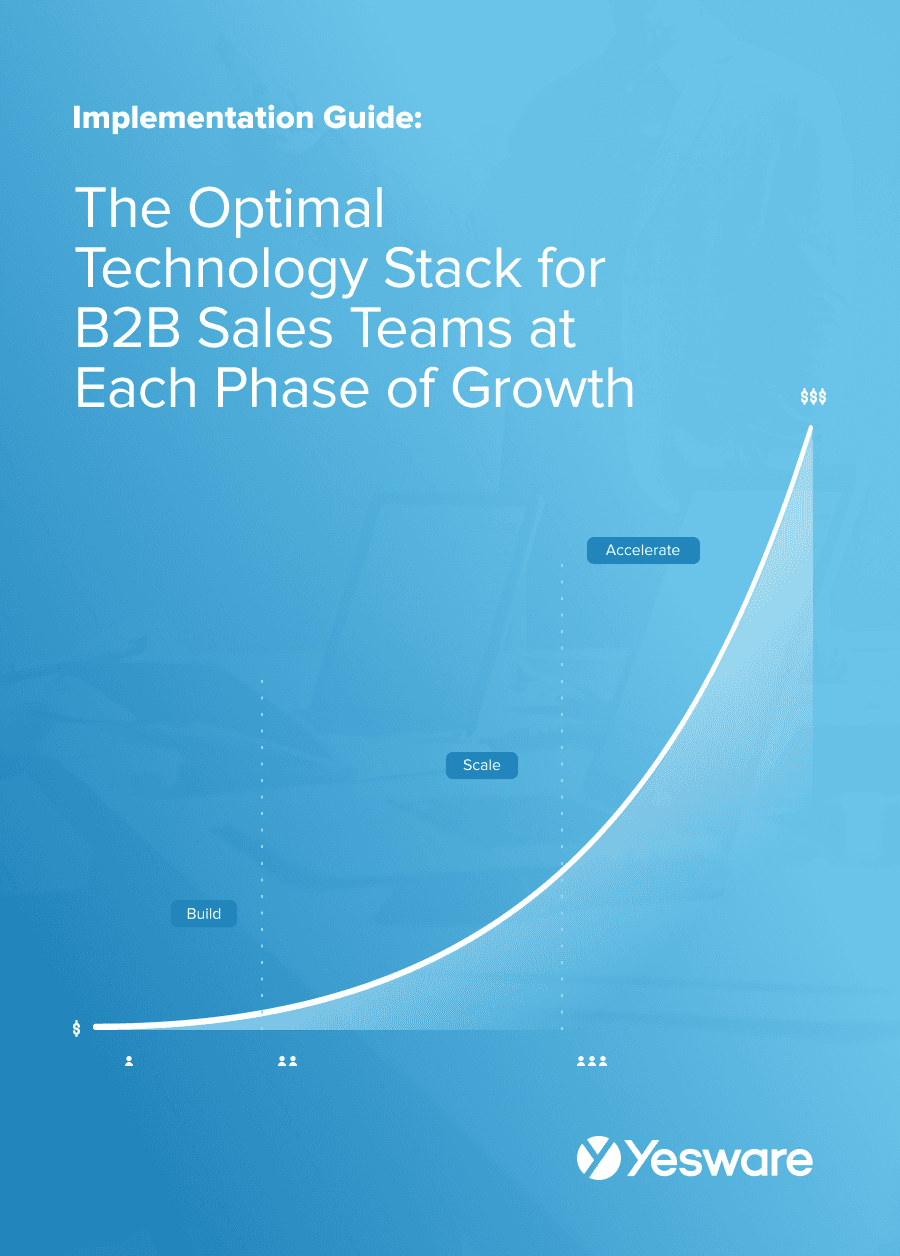 The Optimal Technology Stack for B2B Sales TeamsUsing data from the most successful business-scaling models, we designed a blueprint for the exact technology your business needs at each phase of growth.
The Optimal Technology Stack for B2B Sales TeamsUsing data from the most successful business-scaling models, we designed a blueprint for the exact technology your business needs at each phase of growth.
How to Implement Sales AI
If you’re hoping to implement sales AI practices in your sales process, keep the following best practices in mind.
Define Your Goals
As with any practice in sales, implementing sales AI needs to start by defining your goals.
The best way to create effective sales goals is by using the SMART goal framework. 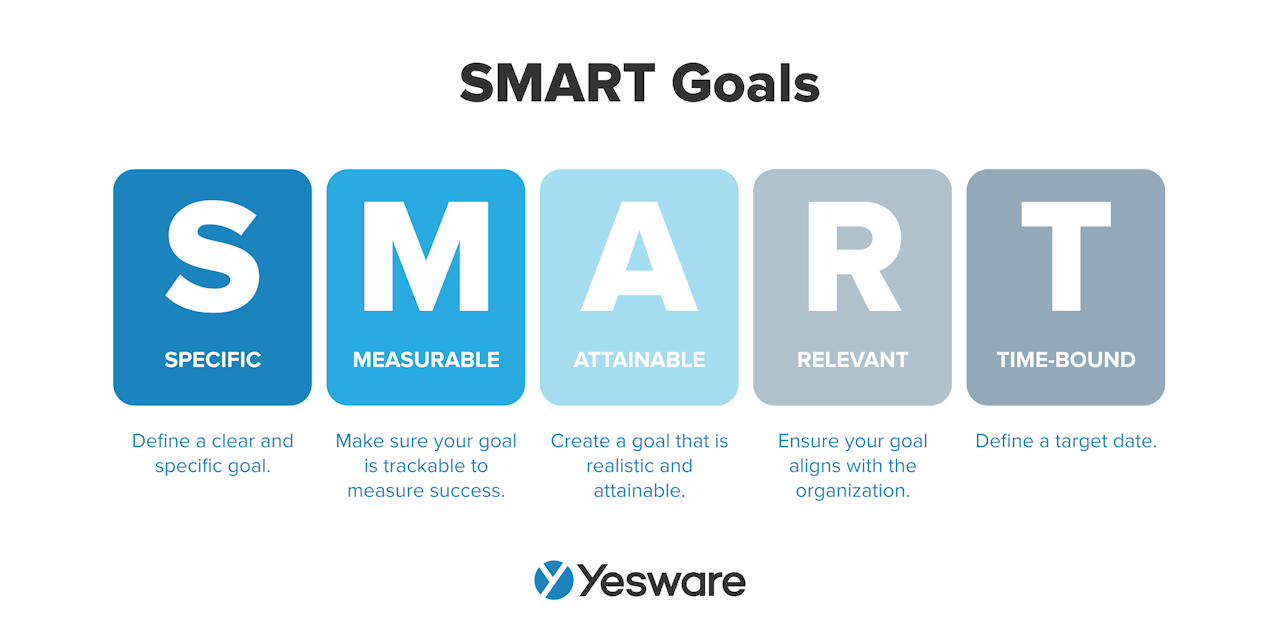 The SMART goal framework will help ensure that your team’s goals are clear, achievable, and measurable. It also helps keep everyone accountable for tracking their progress toward the goal and ensuring the team makes consistent forward progress.
The SMART goal framework will help ensure that your team’s goals are clear, achievable, and measurable. It also helps keep everyone accountable for tracking their progress toward the goal and ensuring the team makes consistent forward progress.
Choose the Right Tools
The right sales AI tool can make all the difference in how successfully you’re able to implement it.
Sales managers and other stakeholders should spend ample time researching the various tools available. There are plenty, with more being developed every day. Find the tool that meets your needs most completely while also being mindful of your budgeting resources.
Tip: 8 Best AI Sales Tools in 2024
Train Team Effectively
Fortunately, many sales AI platforms are designed to be intuitive and easy to use. That being said, your team will get the most benefit from the tools you implement when everyone has a common understanding of how to use them.
To that end, it’s important to take the time to train your team in each of the tools you expect them to use throughout the process. This includes explaining any expectations around data collection and timely reporting.
Monitor Usage and Quality of Data
Speaking of data, it’s important to make sure that the data you feed to your chosen sales AI platform is high-quality and will power the tool effectively.
Teams should maintain strict data hygiene practices to ensure their database is a valuable resource for their sales AI tools. A capable CRM system can help with this.
The more detailed, accurate, and up-to-date your data is, the more powerful your sales AI tools can become.
Conclusion
The future of AI in sales is hard to imagine, because the capabilities and performance seems to outdo itself on a regular basis. Sales AI can help sales teams improve their performance, productivity, and understanding of their market in ways the field has never seen before.
The teams that will benefit the most from these advancements are the ones that learn to harmonize their sales AI tools and human resources.
Yesware was built to be a sales rep’s one-stop shop for automation, personalization, and insight — without the bulky platform (or price tag).
Get sales tips and strategies delivered straight to your inbox.
Yesware will help you generate more sales right from your inbox. Try our Outlook add-on or Gmail Chrome extension for free, forever!
Related Articles
Casey O'Connor
Casey O'Connor
Casey O'Connor
Sales, deal management, and communication tips for your inbox

